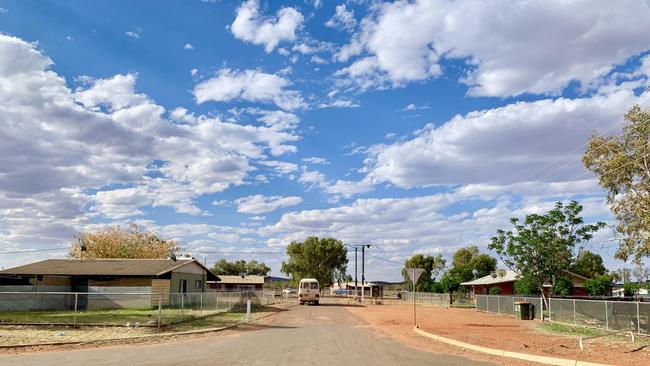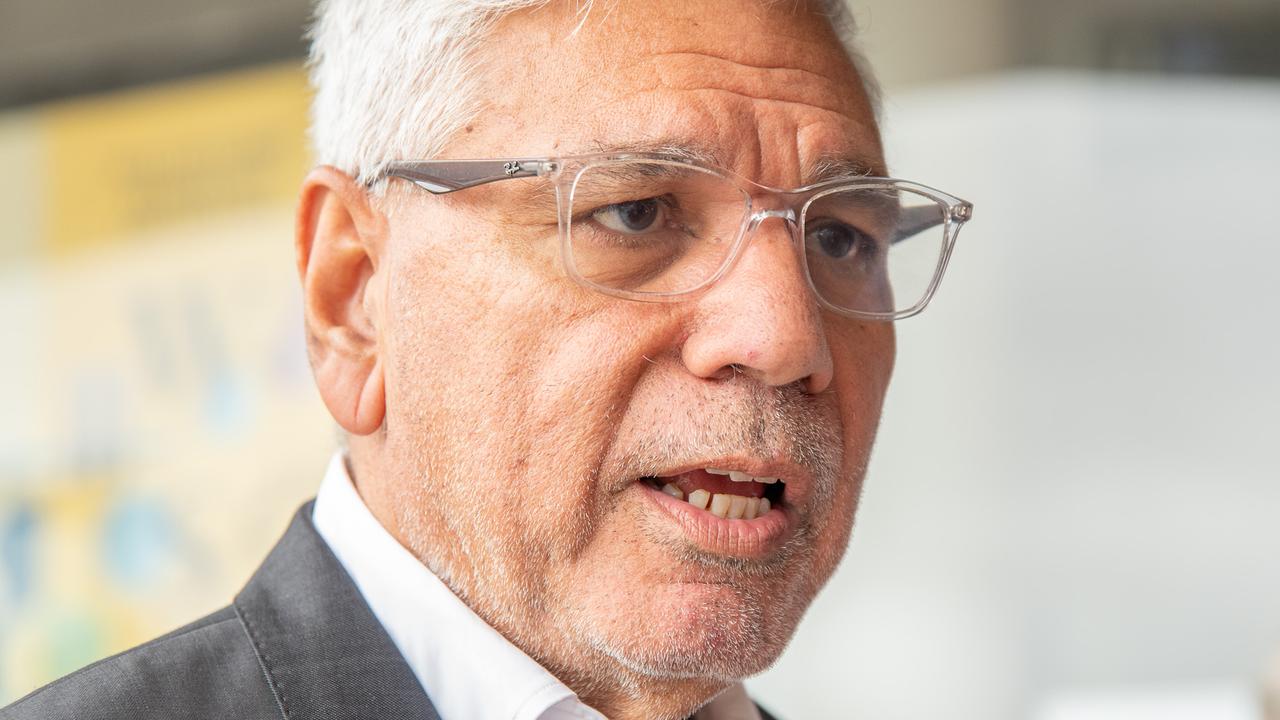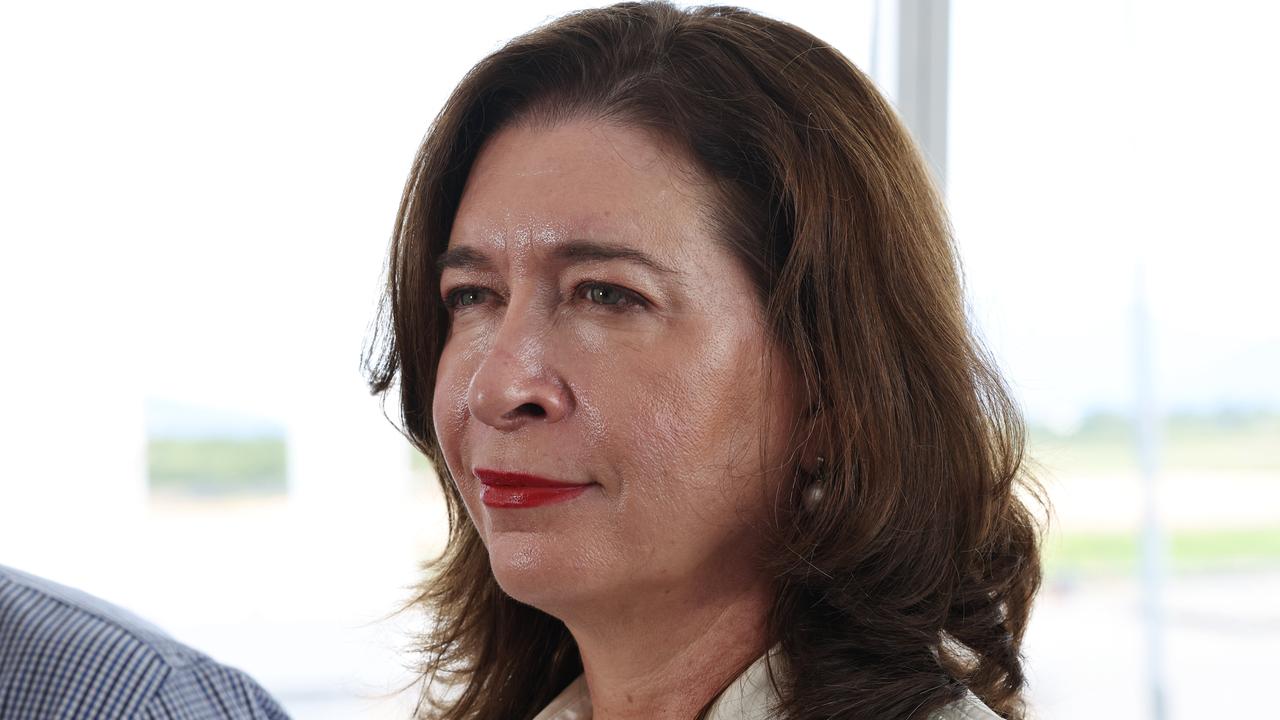Safe drinking water in Indigenous communities a responsibility of the government landlords, court rules
The federal government has been found ultimately responsible for keeping drinking water safe in Aboriginal communities in the Northern Territory.

The Albanese government has been found ultimately responsible for keeping drinking water safe in Aboriginal communities in the Northern Territory, in the latest legal decision that winds back the commonwealth’s long retreat from remote settlements and townships across Australia.
The landmark court ruling found the chief executive of NT Housing is liable for unsafe uranium levels in the water at Laramba, a community of 300 people on a commonwealth lease about 200km west of Alice Springs.
The Northern Territory’s Court of Appeal decision reverses an earlier finding that exonerated the federal government.
The commonwealth is the ultimate landlord of central Australian communities including Laramba, and it funds the NT government to build and maintain public housing in those communities.
Australian Lawyers for Remote Aboriginal Rights estimates 250,000 Indigenous people are currently unable to reliably access safe and healthy water.
Dan Kelly, who represented Laramba tenants in the water case, said the decision on Tuesday had implications for Aboriginal and Torres Strait Islander communities across Australia.
“We know many communities are denied the most basic of human rights, which is access to clean and safe drinking water. The court’s decision makes clear that if government does not take action, they can be held to account,” Mr Kelly said.
“In more than 500 remote Indigenous communities across Australia drinking water isn’t routinely tested and often it isn’t safe to drink. The court’s decision has confirmed that Indigenous peoples have as much right as any other Australian to safe drinking water.”
In the past 13 months, government landlords have lost two significant court cases about their responsibilities to tenants in remote Aboriginal communities.
The first, also in the NT, was a High Court ruling in November 2023 that tenants of substandard public housing in the remote community of Santa Teresa were entitled to compensation. Like Laramba, the Santa Teresa community is also on a lease held by the commonwealth’s executive director of town leasing, and its houses are paid for with federal funds.
The case was brought by a woman in the community, 85km southeast of Alice Springs, who had no back door for five years.
The Santa Teresa decision prompted class action specialists Slater + Gordon to launch a massive civil case over dilapidated housing in Western Australia’s remote Aboriginal communities.
Under the action, which was filed in the Federal Court in August, the WA government is being sued for housing that was a commonwealth responsibility until 2018. That is when the commonwealth stopped paying for houses in remote Aboriginal communities in WA, Queensland and South Australia and handed over responsibility to the states.
By then the commonwealth had already ceased providing municipal and essential services to remote communities in WA.
In 2015, a debate over the commonwealth’s exit from remote communities led then prime minister Tony Abbott to call remote living a lifestyle choice.
Mr Abbott said at the time: “What we can’t do is endlessly subsidise lifestyle choices if those lifestyle choices are not conducive to the kind of full participation in Australian society that everyone should have.”
He made the remarks after then WA Liberal premier Colin Barnett contemplated the monumental cost of taking over housing in remote communities and instead flagged his intention to close up to 150 of the settlements. Mr Barnett proposed concentrating his government’s spending and resources in a small number of large communities with links to the mainstream economy. This policy was broadly adopted by the subsequent Labor McGowan government, which was elected in 2017, but progress has been slow.
When Covid-19 cases climbed in WA in mid-2020, the state’s smallest and most remote communities were inundated with Aboriginal people with familial connections. Many remain there.
Indigenous leaders have blamed a lack of investment in remote communities for the drift of Indigenous people into towns such as Alice Springs, where displaced adults and youths have contributed to alarming increases in crime.
In 2023, a report to the NT cabinet on ways to reduce alcohol-related harm in central Australia said it should be accepted that “there is drift from communities by persons seeking to access alcohol, (and) this, in part, can also be attributed to seasonal trends such as remote communities being affected by heavy rains and roads being cut for periods of time”.




